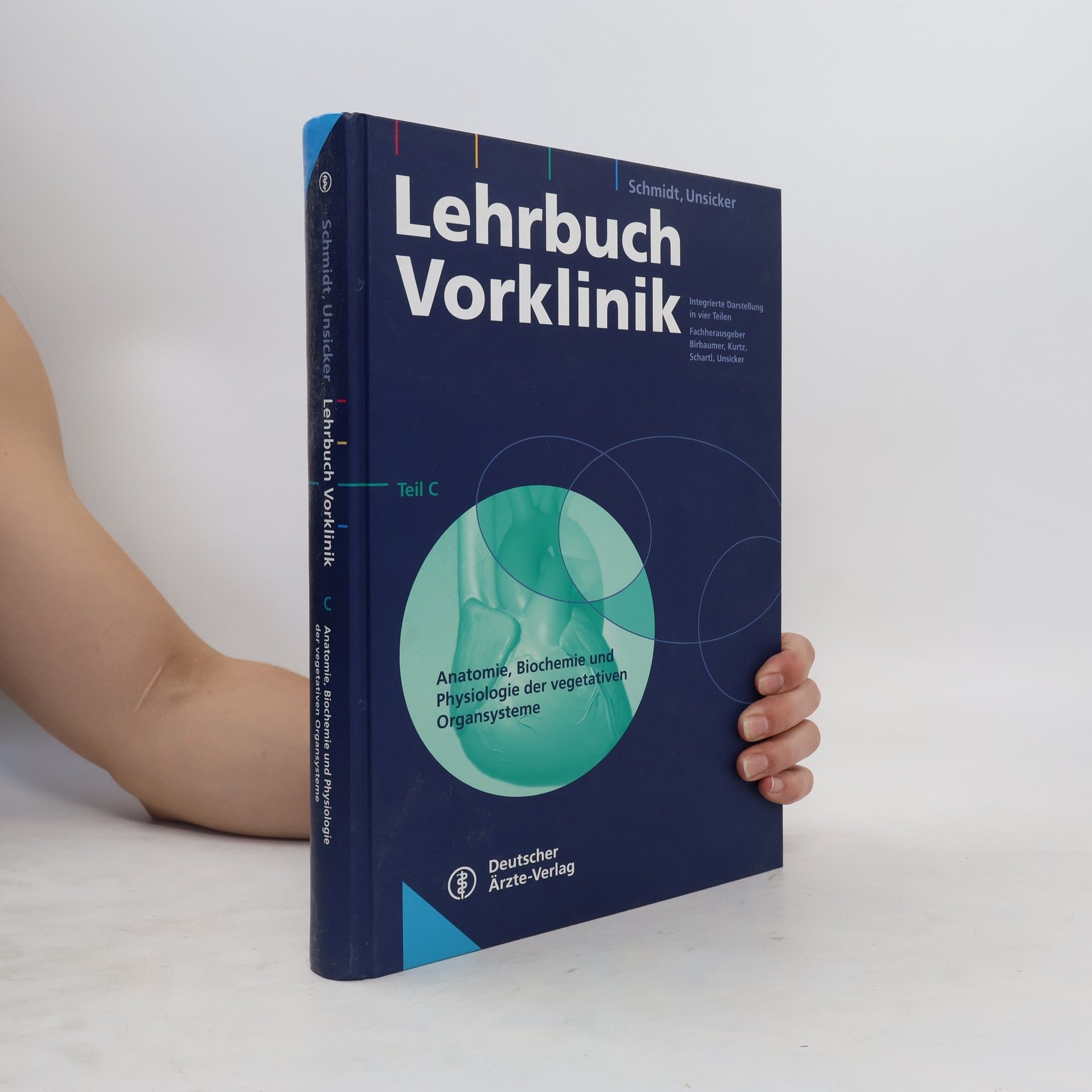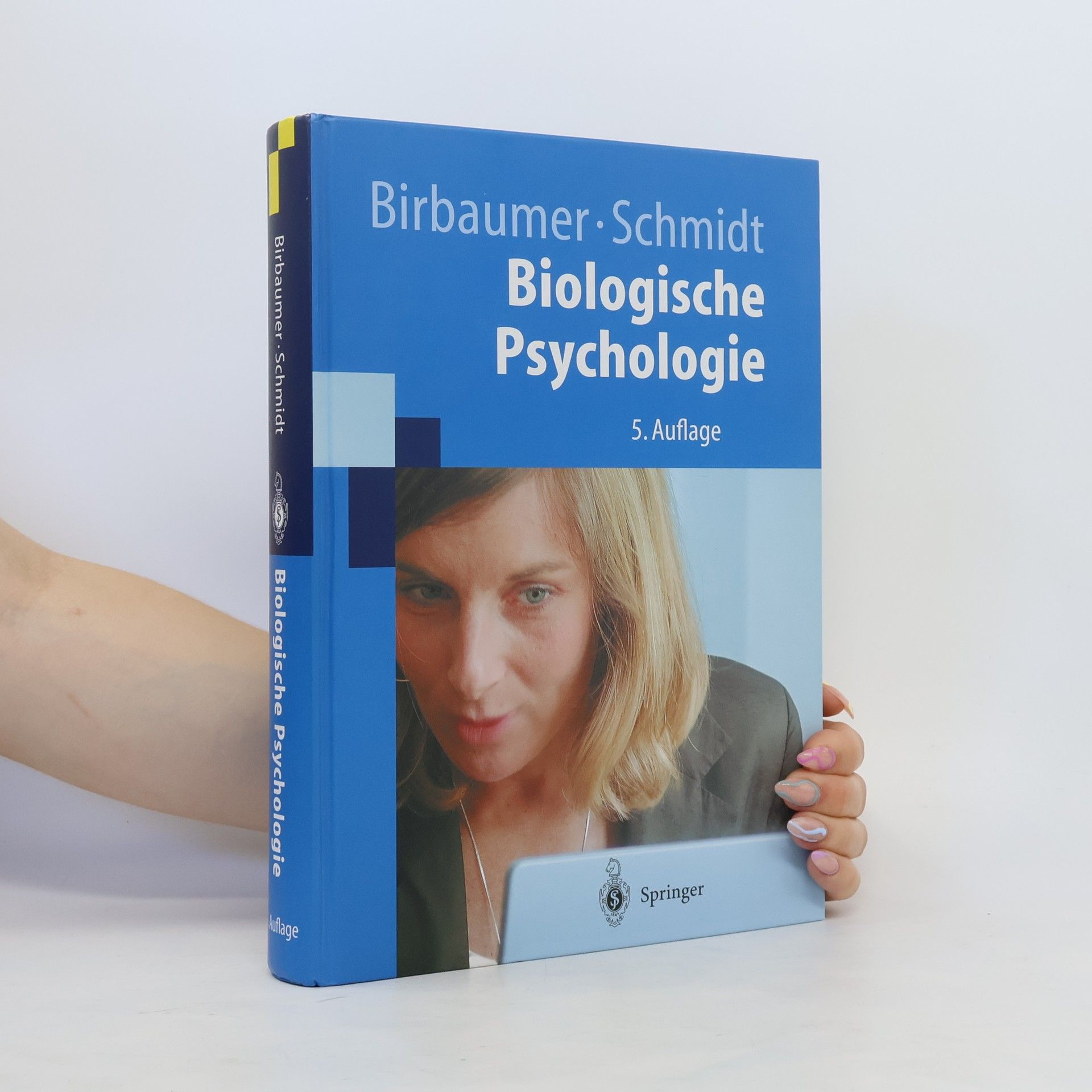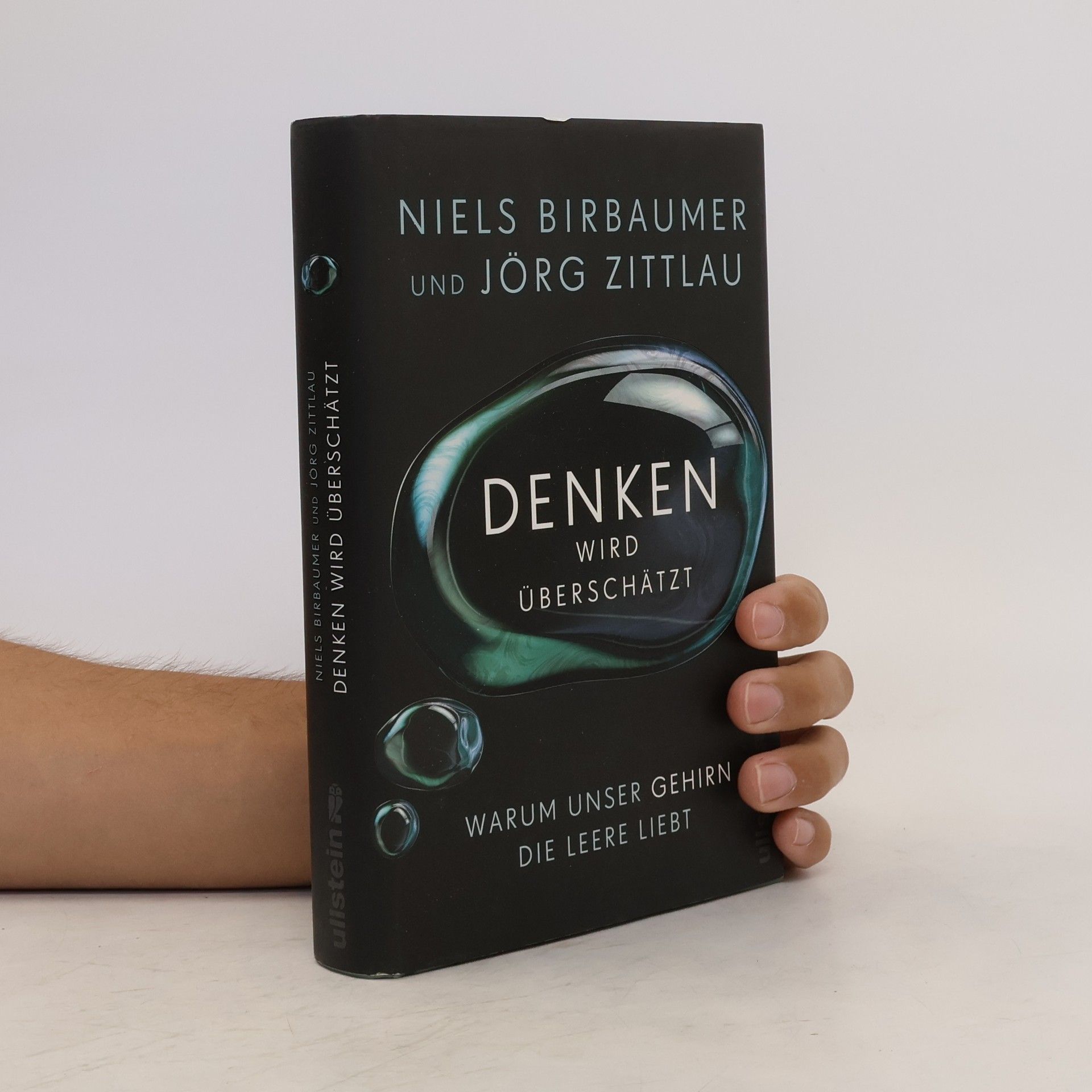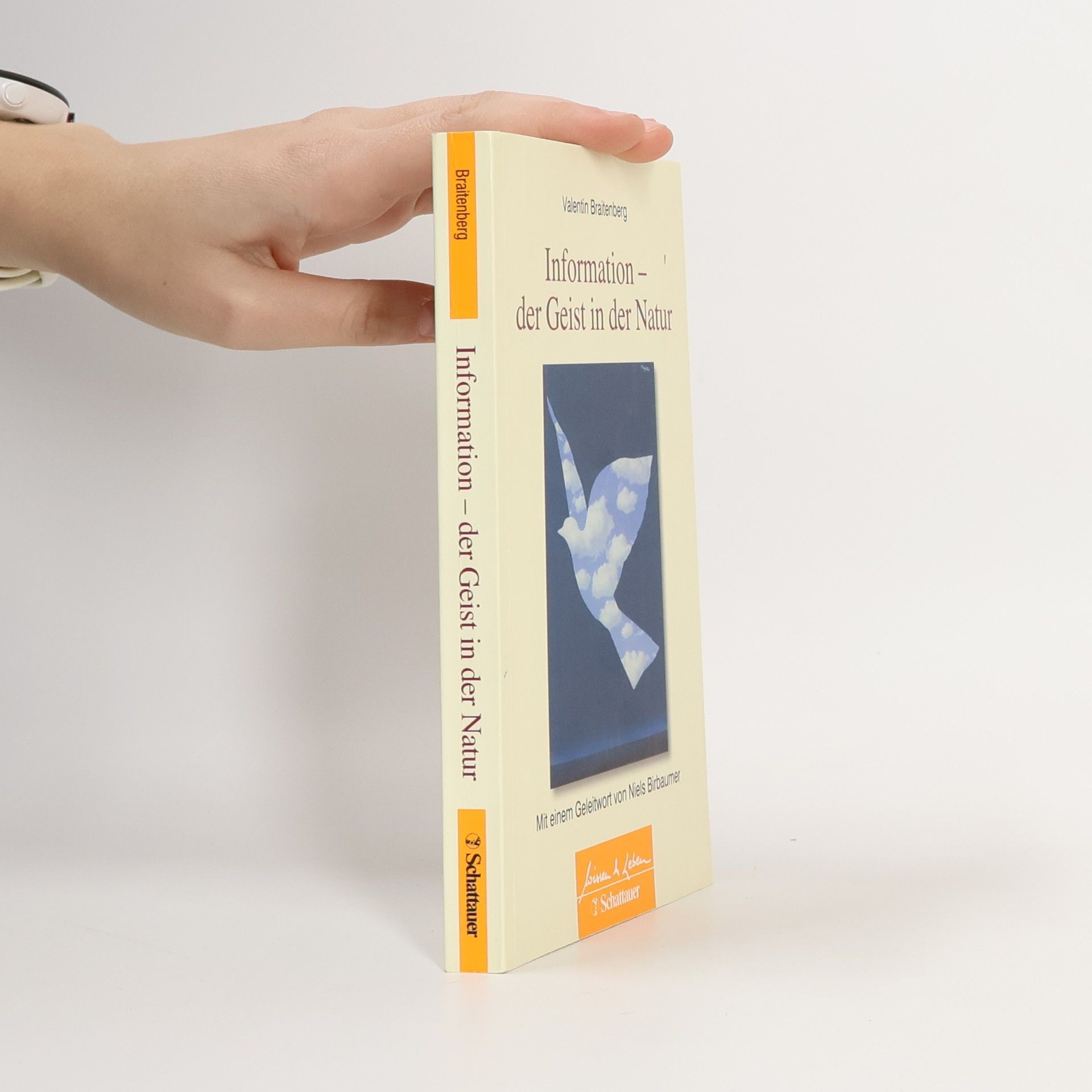Engaging with cutting-edge research, this podcast campaign explores the intersection of science and psychology. It features expert interviews, insightful discussions, and thought-provoking topics that challenge conventional wisdom. Listeners gain access to the latest findings and practical applications, fostering a deeper understanding of human behavior and mental processes. The campaign aims to inspire curiosity and promote informed conversations about the complexities of the mind and the science behind it.
Niels Birbaumer Boeken







Kaum etwas macht uns mehr Angst als die innere Leere. Doch es gibt auch die produktive, gute Leere. Durch Meditation, Konzentration, Musik oder auch beim Sex können wir diesen Zustand erreichen - unser Gehirn liebt die Leere, sie macht uns glücklich. Kein Wissen mehr um das eigene Ich. Selbst die Worte sind verschwunden: Man liest nicht, spricht nicht, auch das Denken scheint versiegt. Eine beängstigende Vorstellung. Die vermutete Leere von Koma und Locked-in schreckt uns so sehr, dass wir sogar Patientenverfügungen unterschreiben, damit man uns diese Zustände erspart. Doch dieser negativen Leere kann man auch einen positive entgegensetzen: Unser Gehirn ist weit mehr als nur eine Zentrale des Denkens. Es ist auch ein Organ, das gerne gedankenlos ist. Die aktuelle Hirnforschung liefert weitere Belege für die Lust an der Leere und zeigt, wie wir sie für uns nutzen können - zumal in einer Welt, die von uns ständige Aktivität erwartet.
Depressionen, Epilepsie, Schlaganfälle und ADS lassen sich kontrollieren, und zwar nur durch Lernen und ohne risikoreiche Medikamente. So lautet die bahnbrechende Erkenntnis des renommierten Hirnforschers Niels Birbaumer. Denn das Gehirn verfügt über fast grenzenlose Potentiale und gleicht bei der Geburt einer Tabula rasa: Nur wenig ist festgelegt, das meiste wird geformt. Darum haben wir großen Einfluss auf unser Denken und Handeln — und unser Gehirn kann sich selbst aus dem Sumpf seiner Erkrankungen ziehen. „Wissenschaftsbuch des Jahres 2015“, Buchkultur, Österreich
Biologische Psychologie
- 786bladzijden
- 28 uur lezen
Biologische Psychologie, das erfolgreiche Lehrbuch von Robert F. Schmidt und Niels Birbaumer, liegt in der 5. Auflage vor. Die biologischen Grundlagen unseres Verhaltens werden von physiologischen Prozessen bis zu komplexen Funktionen des ZNS, wie Bewusstsein, Motivation und Kognitionen, beschrieben. Neue Methoden der Biopsychologie und aktuelle Forschungsergebnisse wurden ergdnzt. Die Didaktik des Lehrbuches macht es zu einer unverzichtbaren Grundlage f]r Pr]fungsvorbereitung und Studium. Kapitelzusammenfassungen und Infoboxen kennzeichnen pr]fungsrelevantes Wissen. Zahlreiche Abbildungen veranschaulichen das Zusammenwirken von Verhaltensprinzipien und physiologischen Gesetzmd_igkeiten.
Integriert; Fächerübergreifend; nach der neuen Approbationsordnung: Das gesamte prüfungsrelevante Fachwissen zur optimalen Vorbereitung auf die Ärztliche Vorprüfung. Die neue Approbationsordnung für Ärzte, die am 1. Oktober 2003 in Kraft trat, führt erstmals in Deutschland einen fächerübergreifenden Unterricht im Studium der Humanmedizin ein. Dies bedeutet für den vorklinischen Studienabschnitt eine problemorientierte Darstellung, die biomedizinische Grundlagenfächer integriert. Das Lehrbuch bietet eine integrierte Darstellung des gesamten vorklinischen Stoffes, wobei Organe wie die Niere unter anatomischen, physiologischen und biochemischen Aspekten betrachtet werden. Dieses Vorgehen fördert eine ganzheitliche medizinische Sichtweise, vermeidet Redundanzen und unterstützt ein fächerübergreifendes Verständnis für Erkrankungen. Jedes Kapitel beginnt mit einem klinischen Fall und endet mit einem Ausblick, um die Theorie mit der Praxis zu verknüpfen. Trotz der integrierten Darstellung werden Inhalte klar den klassischen Fachbereichen zugeordnet. Das Werk enthält zahlreiche Querverweise, Literaturangaben und ein umfangreiches Stichwortverzeichnis. Die Herausgeber wurden von einem studentischen Beirat unterstützt, der die Praktikabilität des Konzepts prüfte. Das Lehrbuch bietet somit eine umfassende Vorbereitung auf den ersten Abschnitt der Ärztlichen Prüfung. Rezensionen heben die innovative, fächerübergreifende Darstellu
Ausgerechnet das, was unser Leben in eintscheidenden Momenten stabilisiert, soll Gefahren beinhalten? Doch Vertrauensmissbrauch gilt zu Recht als Sakrileg, oft kann man nicht sagen, ob ein Vertrauensvorschuss gerechtfertigt ist. Wann man einen Neurowissenschaftler danach fragen würde, wo denn der Sitz dieses Gefühls ist, - er müsste passen. Um sich der Komplexität des Vertrauens anzunehmen, haben sich der Literaturwissenschaftler Jürgen Wertheimer und der Gehirnforscher Niels Birbaumer zusammengetan. Der eine schaut tief in den Fundus der Literaturgeschichte, der andere in unser Gehirn. Kann der Vertrauenscode vielleicht doch entschlüsselt werden?
Information - Der Geist in der Natur
- 158bladzijden
- 6 uur lezen
Ein Titel aus der Reihe Wissen & Leben Herausgegeben von Wulf Bertram Ich traue mir zu, auch den glühendsten Esoteriker von der Schönheit eines Weltbilds zu überzeugen, in dem der Geist seinen Platz findet, dort wo er hingehört: in einer geschlossenen Darstellung der Natur. Valentin Braitenberg Wir leben mitten in einem üppigen Theater millionenfach variierter pflanzlicher und tierischer Formen. Sie bedecken die Oberfläche der Erde und erwecken unsere Bewunderung und unser ästhetisches Empfinden. Die GeSetze dieser Vielfalt – ihren „Geist“ also – haben wir allerdings noch kaum ergründet. Valentin Braitenberg ist Hirnforscher und Kybernetiker. Er hat sich ein Leben lang bemüht, komplexe Verschaltungen im Gehirn als technische Lösungen verhaltensphysiologischer Aufgaben zu erklären. In diesem Buch geht seine Ambition noch einen Schritt weiter: Im Begriff der Information, der in der „künstlichen Intelligenz“ eine zentrale Rolle spielt, sieht er das Äquivalent zum „Geist in der Natur“. Mit nüchternem, wissenschaftlich-kritischem Blick und doch immer wieder augenzwinkernd präsentiert er uns die Geister, die uns umgeben – und zeigt auf ebenso unterhaltsame wie verblüffende Weise, dass sie ihren festen Platz in der Wissenschaft verdient haben. Ein uraltes philosophisches Problem wird so entzaubert.


